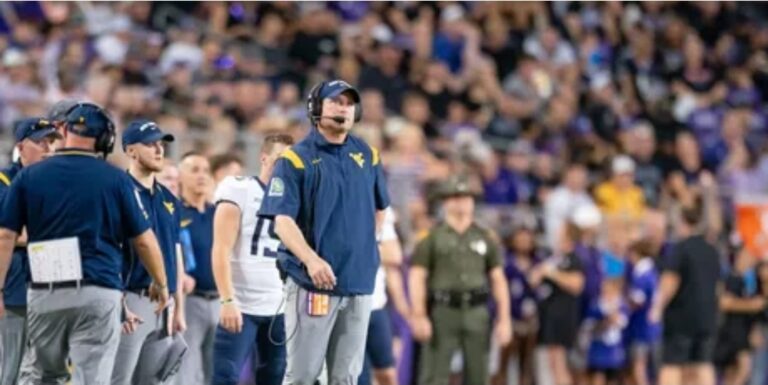**Mountaineers Eye Fresh Defensive Start After Lesley’s Exit**
The West Virginia Mountaineers are embarking on a new chapter in their defense after the unexpected departure of defensive coordinator Jordan Lesley. Lesley, who had been with the Mountaineers for several seasons, played a crucial role in shaping the team’s defensive identity. His exit has left a void, but it has also opened the door for new opportunities, as head coach Neal Brown and the program look to refresh their defensive schemes and personnel.
Lesley’s departure, though surprising, was part of a broader reshuffling that is common in college football. His tenure at West Virginia had seen moments of brilliance, especially in 2020 when the Mountaineers’ defense was one of the nation’s top-ranked units. However, in the years that followed, the defense showed signs of inconsistency. Injuries, player departures, and recruiting challenges contributed to the struggles, and Lesley’s ability to adapt the defense to changing circumstances was often questioned. While Lesley left the program with a solid defensive foundation, many felt that the defense had plateaued in recent seasons.
With Lesley now gone, the Mountaineers’ focus shifts toward rebuilding and reinvigorating a defense that has the potential to be much more disruptive. Brown and his coaching staff have already begun assessing the strengths and weaknesses of the defense, and several key changes are expected in the coming months.
One of the primary areas of focus will be improving the pass rush. West Virginia’s defensive line, which had shown flashes of dominance in the past, struggled to consistently pressure opposing quarterbacks last season. The Mountaineers’ inability to generate a steady pass rush left their secondary exposed, allowing quarterbacks to have more time to make plays. This season, the team is looking to bring in new talent and develop young players to fill key roles on the defensive front. A stronger pass rush will be crucial in elevating the defense’s performance and putting more pressure on opposing offenses.
In the secondary, the Mountaineers will also look to rebuild after losing several key contributors. The cornerbacks and safeties will need to step up to handle the challenges presented by fast-paced, high-scoring offenses. West Virginia has recruited a solid group of defensive backs, and the development of these players will be pivotal in creating a balanced and effective defense.
The linebacker position is another area where West Virginia will need to find answers. With the departure of several veterans, the Mountaineers will be relying on a mix of returning players and incoming recruits to stabilize the core of their defense. Linebackers play a crucial role in both run defense and pass coverage, and a more aggressive, attacking style could help to mask some of the defense’s past weaknesses.
The transition will likely involve not just changes in personnel but also shifts in defensive philosophy. Lesley’s defense was often characterized by a more conservative, bend-but-don’t-break style. Under new leadership, there may be a move toward a more aggressive approach, one that emphasizes turnovers, blitz packages, and a more dynamic style of play. Brown and his staff have expressed a desire to revitalize the defensive playbook and introduce schemes that will better suit the talent currently on the roster.
Ultimately, the Mountaineers’ defense in 2024 will have a lot to prove. The program is hoping that a fresh start after Lesley’s exit will inject new life into the unit, and with the right mix of talent, coaching, and scheme, the defense could be poised for a significant rebound. As the season progresses, all eyes will be on how West Virginia’s defense evolves and whether it can return to the formidable unit that once helped propel the team into national relevance.


